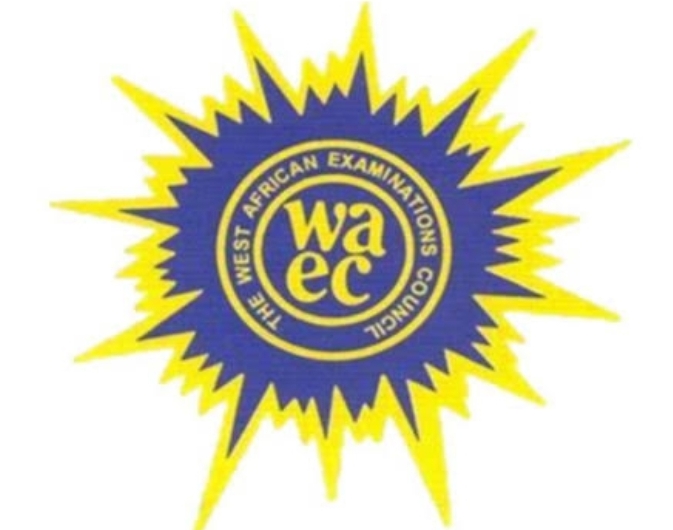Get Free live 2024 WAEC Government (GOVT) OBJ (Objectives) and ESSAY (Theory) Questions and Answers EXPO Room for School Candidate and Private Candidates. WAEC Government OBJ and ESSAY Questions and Answers, 2024 WAEC Free Question and Answer for Government OBJ and Theory, 2024 WAEC syllabus for Government free PDF download.

WAEC Government OBJ and ESSAY Questions and Answers
The West African Examinations Council (WAEC) has provided helpful materials on Government to prepare you for the final exam, which will Start on Thursday, 6th June, 2024 , and will consist of Government 2 (Essay) and Government 1 (Objective). These materials will help you know what is expected of you and how to do your best in the Senior School Certificate Examination (SSCE).
WAEC Government Question And Answer – Time/Date:
| Subject | Exam Type | Time | Duration |
|---|---|---|---|
| Government 2 | Essay | 9:30 am. – 11:30 am. | 2hrs |
| Government 1 | Objective | 11:30 am. – 12:30 pm | 1hr. |
2024 WAEC Government (ESSAY) Answers:
=================================
=================================
=================================
ANSWERS LOADING ==============
2024 WAEC Government (OBJ) Answers:
Click Here To Get Full Answers On WhatsApp
Recommended Post:
- 2024 WAEC Catering Craft Practice Questions and Answers | OBJ & ESSAY
- 2024 WAEC Mathematics May/June Questions and Answers (OBJ & Essay)
- 2024 WAEC Food and Nutrition (OBJ/ESSAY) Questions and Answers
- 2024 WAEC Literature OBJ (Prose, Drama & Poetry) Questions and Answers
- 2024 WAEC SSCE Timetable Out: Check Exam Dates Here
- WAEC May/June 2024 Tourism (ESSAY/OBJ) Questions and Answers
- 2024 WAEC Stenography (OBJ/ESSAY) Questions and Answers
- WAEC Biology (OBJ & ESSAY) Questions and Answers | 23rd May, 2024
- 2024 WAEC Civic Education (OBJ/ESSAY) Questions and Answers
- WAEC Commerce (OBJ/ESSAY) Questions and Answers | 11th June, 2024
WAEC Government Subscription Information:
| Subscription Type | Cost | Description |
|---|---|---|
| Direct Mobile Payment (Per Subject) | N800 | Get answers on time |
| Direct Mobile Payment (Per Practical) | N700 | Get answers on time |
How To Subscribe:
| Step | Action | Description |
|---|---|---|
| 1 | Buy MTN cards of N800 (400 + 400 = 800) | – |
| 2 | Go to your message, type the card pins correctly, and send to 09074969983 | – |
| 3 | Don’t call, just text; if the card pins are valid, a reply will be sent to you confirming your subscription | – |
| 4 | Relax and wait for your answers 30 minutes before the exam starts or after the exam starts | – |
Important Notes
- Do not send used card pins or your number will be blacklisted
- Keep refreshing this page for updates
Click Here to Join Our WhatsApp VIP Group.
2024 Government WAEC Syllabus:
The 2024 WAEC Syllabus for Government is available below. Please note that this syllabus applies to both school candidates and private candidates.
Aims and Objectives
- Define and understand the concepts of Government, its principles, institutions, and processes.
- Recognize their role as informed citizens and their contributions towards national development.
- Evaluate the successes, failures, and problems of governments in West Africa.
- Analyze the constitutional developments and processes of colonial and post-independent government.
- Appreciate the role of their country as a member of the international community.
Scheme of the Examinations
Paper 1
- Multiple-choice objective questions : 50 questions drawn from the entire syllabus.
- Time : 1 hour
- Marks : 40
Paper 2
- Essay type test : 2 hours
- Sections :
- Section A: Elements of Government : 5 questions, attempt 2
- Section B: Political and Constitutional Developments in West Africa and International Relations : 5 questions, attempt 2 from the set on the country where the examination is taken
- Marks : 60
Elements of Government
| Topic | Sub-Topics |
|---|---|
| 1. Meaning and Scope of Government | – Government as an institution of the state – Government as a process or art of governing – Government as an academic field of study |
| 2. Basic Concepts and Principles of Government | – Basic concepts: State, Society, Nation, Power, Authority, Legitimacy, Sovereignty, Democracy, Political Culture and Socialization, Communalism, Feudalism, Oligarchy, Liberalism, Socialism, Communism, Capitalism, Fascism, Aristocracy, Totalitarianism – Basic principles: Rule of Law, Fundamental Human Rights, Separation of Powers/Checks and Balances, Constitutionalism, Political participation, Representative Government, Centralization and Decentralization |
| 3. Constitutions | – Definition and Sources – Functions – Types and Features (Written and Unwritten, Rigid and Flexible) |
| 4. Organs of Government | – The Executive, the Legislature, and the Judiciary – Judicial Independence – Types, Structure, Composition/membership; Functions; powers and limitations |
| 5. State Structure and Characteristics of Government | – Types: Unitary, Federal, Confederal, Presidential or Non-parliamentary, Parliamentary or Cabinet, Monarchical, and Republican – Meaning, types, features, merits, and demerits |
| 6. Citizenship | – Meaning, mode of acquisition, rights, duties, and obligations of individuals in the state – Means of safeguarding rights of citizens |
| 7. Political Parties and Party Systems | – Political Parties: definition, organization/structure, and functions – Party Systems: definition, types, merits, and demerits |
| 8. Pressure Groups, Public Opinion, and Mass Media | – Pressure Groups: definition, types, mode of operation, and functions – Public opinion: definition, formation, measurement, and importance – Mass Media: definition, roles, and impact |
| 9. Electoral Systems, Processes, and Electoral Management Body | – Electoral Systems and Processes: election, franchise, types, advantages, and disadvantages – Electoral Management Body: definition, function, problems/constraints |
| 10. Public/Civil Service Administration | – Public/Civil Service: meaning, structure, characteristics, and functions – Public/Civil Service Commission: meaning and functions – Public Corporations: definition, purposes, functions, control, challenges, need for commercialization and privatization – Local Governments: meaning, structure, purposes, functions, sources of revenue, control, and problems |
